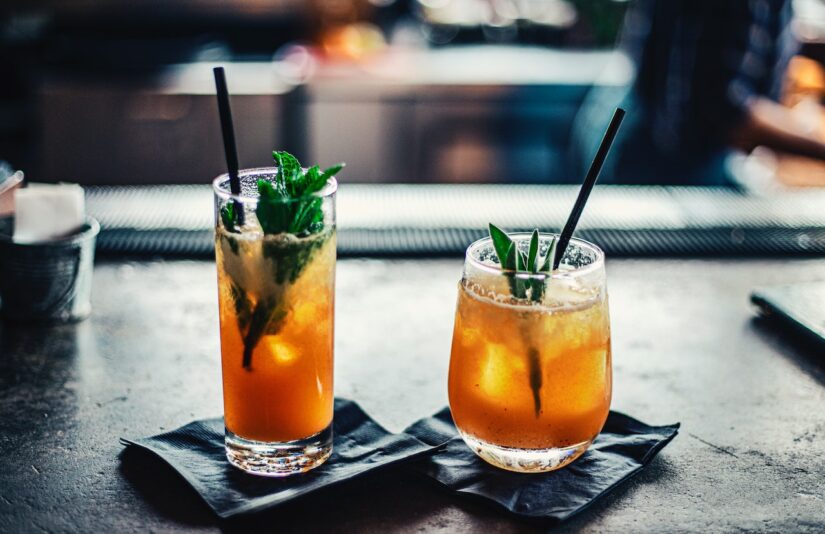The impact of non-alcoholic drinks on dissertation student productivity has been widely researched and debated. Some studies suggest that non-alcoholic drinks can improve productivity, while others claim that they can have a negative impact. However, the majority of research on this topic has been inconclusive.
There are a number of possible explanations for this. First, the effects of non-alcoholic drinks on productivity may vary depending on the individual. Some people may find that they are more productive when they consume non-alcoholic drinks, while others may find that they are less productive. Second, the type of non-alcoholic drink may also affect productivity. Some drinks, such as coffee and tea, contain caffeine, which can improve alertness and concentration. Other drinks, such as juice and soda, do not contain caffeine and may not have the same effect on productivity.
Overall, the impact of non-alcoholic drinks on dissertation student productivity is still uncertain. However, if you find that you are more productive when you consume non-alcoholic drinks, then it may be worth incorporating them into your dissertation-writing routine.
How do non-alcoholic drinks impact dissertation student productivity?
There’s no doubt that drinking can impact dissertation student productivity. Whether it’s alcohol or caffeine, too much of either can lead to problems concentrating and staying focused. So what about non-alcoholic drinks?
While it’s important to stay hydrated, research shows that sugary drinks can actually lead to a decrease in productivity. In one study, participants who drank sugary beverages were less likely to complete a task than those who drank water or unsweetened tea.
So if you’re looking for a drink that will help you stay productive while working on your dissertation, water is your best bet.
The positive and negative impact of non-alcoholic drinks on dissertation student productivity.
There’s no question that students need to be productive to succeed in their studies. But what impact do non-alcoholic drinks have on productivity?
Some might say that they have a positive impact, as they can help to keep students hydrated and alert. However, others might argue that they can be a distraction, especially if they contain caffeine.
So, what’s the verdict? It seems that the jury is still out on this one. Some studies have found that caffeine can improve focus and concentration, while others have found that it can actually lead to poorer performance.
At the end of the day, it’s up to each individual student to decide whether they think non-alcoholic drinks help or hinder their productivity. If you find that they help you to focus and get your work done, then great! If not, then you might want to cut back or switch to something else.
The impact of energy drinks, soft drinks, and water on dissertation student productivity.
There is no one definitive answer to this question. Different students may have different opinions on the matter, and there is no scientific evidence to support any specific claims. However, many students report that drinking energy drinks, soft drinks, or water can help them stay focused and productive while working on their dissertations.
Some students find that energy drinks give them the boost they need to stay focused and productive. Others find that soft drinks help to keep them hydrated and refreshed, which can also help with productivity. And still others find that plain water is the best way to stay hydrated and avoid any potential negative side effects from caffeine or sugar.
Ultimately, it is up to each individual student to decide what works best for them. If you are having trouble staying focused or motivated while working on your dissertation, experiment with different beverages until you find one that helps you stay on track.
A case study on the impact of non-alcoholic drinks on dissertation student productivity.
It’s no secret that college students often turn to caffeine-laden energy drinks to help them power through late-night study sessions and early-morning classes. But while these drinks may give you a temporary boost, they can also have a negative impact on your productivity in the long run.
A new study published in the journal Frontiers in Human Neuroscience provides some insight into how energy drinks affect cognitive function. For the study, researchers from the United Kingdom and Qatar recruited 36 healthy young adults and had them complete a series of tests after consuming either an energy drink or a placebo.
The results showed that those who had consumed the energy drink performed worse on the tests than those who had taken the placebo. In particular, the energy drink group showed poorer working memory and attention span.
Interestingly, the researchers found that the negative effects of the energy drink were more pronounced in those who self-reported as being more impulsive. This suggests that energy drinks may be particularly harmful for those who are already struggling with regulating their attention and focus.
So, if you’re trying to boost your productivity while working on your dissertation, it’s best to steer clear of energy drinks. Instead, opt for healthy snacks and beverages that will give you sustained energy throughout the day.
An analysis of the impact of non-alcoholic drinks on dissertation student productivity.
There’s no doubt that dissertation students need to be productive in order to succeed. But what impact do non-alcoholic drinks have on their productivity?
A new study has found that non-alcoholic drinks can actually help dissertation students to be more productive. The study, conducted by the University of Hertfordshire, found that students who drank non-alcoholic beverages while working on their dissertations felt more energetic and focused than those who didn’t drink anything at all.
So, if you’re struggling to stay productive while working on your dissertation, it might be worth trying out a few non-alcoholic drinks. Some of the best options include green tea, coffee, and water. Just make sure that you don’t go overboard with the caffeine!
